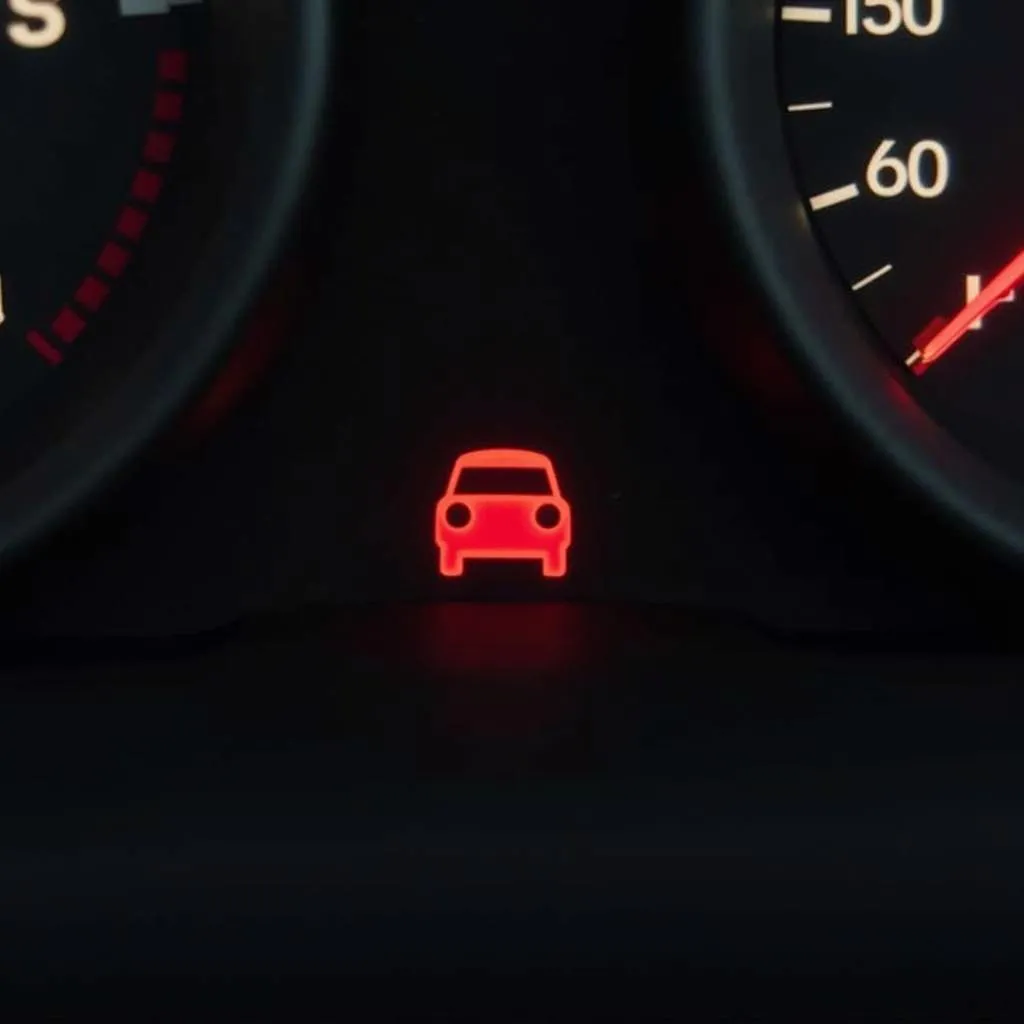The dreaded audi brake warning light. It illuminates your dashboard, injecting a dose of anxiety into your otherwise smooth drive. What does it mean? Is it a minor issue or something more serious? This comprehensive guide will delve into the various reasons why your Audi’s brake warning light might be on, offering troubleshooting tips, potential solutions, and expert advice to help you get back on the road safely. audi brake warning lights
Brake warning lights are crucial safety indicators in your Audi. They communicate potential problems within the braking system, ranging from low brake fluid to worn brake pads. Ignoring these warnings can lead to costly repairs, compromised safety, and potentially dangerous driving situations. Understanding the different types of brake warning lights and their associated meanings can empower you to address these issues promptly and effectively.
Decoding Your Audi’s Brake Warning Light
Different brake warning light patterns can indicate different problems. A steady light might signal low brake fluid, while a flashing light often points to a more serious issue with the ABS or electronic brake control system. Let’s break down the most common scenarios:
- Solid Red Light: This typically indicates low brake fluid. Check your brake fluid reservoir immediately.
- Flashing Red Light: This is more serious and often suggests a problem with the ABS (Anti-lock Braking System) or other electronic brake components.
- Amber Brake Pad Wear Light: This light indicates that your brake pads are nearing the end of their lifespan and need replacing soon.
Common Causes of an Illuminated Audi Brake Warning Light
Several factors can trigger the brake warning light in your Audi. Understanding these causes can help you pinpoint the issue and determine the appropriate course of action.
- Low Brake Fluid: One of the most common culprits. Leaks in the brake lines, worn brake calipers, or worn master cylinders can cause brake fluid loss.
- Worn Brake Pads: As brake pads wear down, they trigger a sensor that illuminates the brake warning light.
- Faulty ABS Sensor: A malfunctioning ABS sensor can disrupt the anti-lock braking system and trigger the warning light.
- Brake Fluid Sensor Malfunction: Sometimes, the sensor itself can be faulty, triggering the warning light even when the brake fluid level is adequate.
- Issues with the Master Cylinder: The master cylinder plays a vital role in distributing brake fluid pressure. Problems with this component can activate the warning light.
audi brake warning light troubleshooting
Troubleshooting Your Audi Brake Warning Light
Before rushing to a mechanic, you can perform some basic troubleshooting steps:
- Check the Brake Fluid Level: Locate the brake fluid reservoir under the hood and check the fluid level. If it’s low, top it off with the correct brake fluid type specified in your owner’s manual.
- Inspect the Brake Pads: Visually inspect your brake pads through the wheel spokes. If they appear thin or worn, they likely need replacing.
- Check for Leaks: Look for any signs of brake fluid leaks around the brake lines, calipers, and master cylinder.
“Regular brake inspections are crucial for maintaining safety and preventing costly repairs,” says automotive expert, Dr. Andreas Wagner, a renowned specialist in automotive diagnostics and repair. “Don’t underestimate the importance of addressing brake warning lights promptly.”
When to Seek Professional Help
If you’ve performed the basic troubleshooting steps and the brake warning light persists, it’s essential to seek professional help. audi brake warning light stays on
- Flashing Brake Warning Light: A flashing light almost always requires professional diagnosis.
- Suspected ABS Issues: Troubleshooting ABS problems requires specialized diagnostic equipment.
- Inability to Identify the Cause: If you can’t pinpoint the issue, a professional mechanic can diagnose the problem accurately.
“Modern braking systems, especially those incorporating ABS and electronic stability control, are complex,” adds Dr. Wagner. “Attempting to repair these systems without proper training and equipment can lead to further damage.”
Audi Brake Warning Light Reset
After addressing the underlying issue that triggered the brake warning light, it might need to be manually reset. Some Audis have a specific reset procedure, while others require diagnostic tools. audi brake warning light reset
Conclusion
The audi brake warning light serves as a vital communication link between your car and you. Understanding its various meanings and taking appropriate action can help ensure your safety and prevent costly repairs. Don’t ignore the warning – address it promptly and get back to enjoying the drive. audi brake warning light flashing
FAQ
- What is the most common cause of an Audi brake warning light? Low brake fluid is often the primary culprit.
- Is it safe to drive with the brake warning light on? It depends on the specific warning. A solid light might allow for cautious driving to a mechanic, but a flashing light indicates a more serious issue, and driving should be avoided.
- How do I check my Audi’s brake fluid level? Locate the brake fluid reservoir under the hood and check the fluid level against the markings on the reservoir.
- Can I reset the brake warning light myself? Sometimes, but often specialized diagnostic tools are required.
- What does a flashing brake warning light mean? This usually indicates a problem with the ABS or other electronic brake components.
- How often should I check my brake pads? It’s recommended to inspect your brake pads every 10,000 to 12,000 miles.
- What type of brake fluid does my Audi use? Refer to your owner’s manual for the specific brake fluid type recommended for your Audi model.

